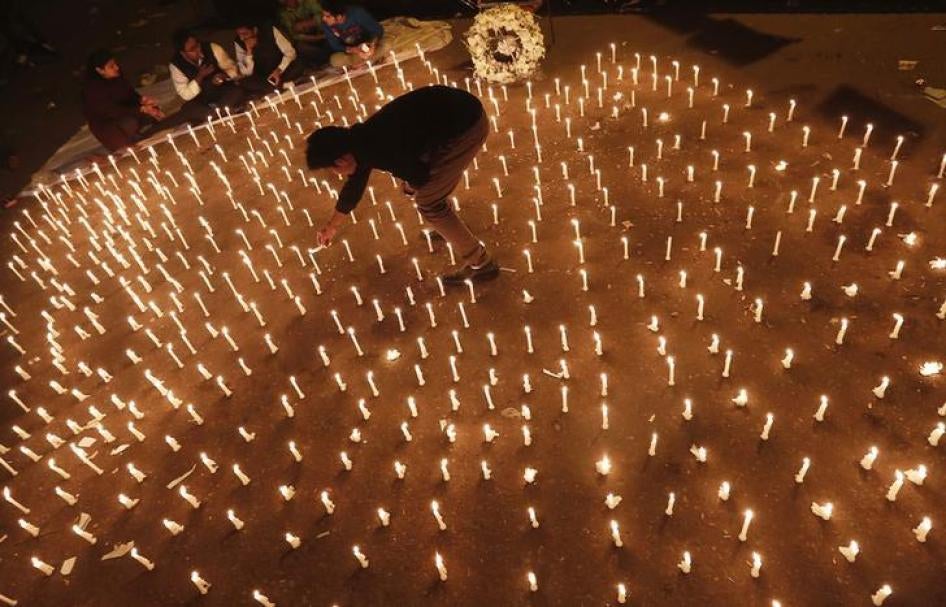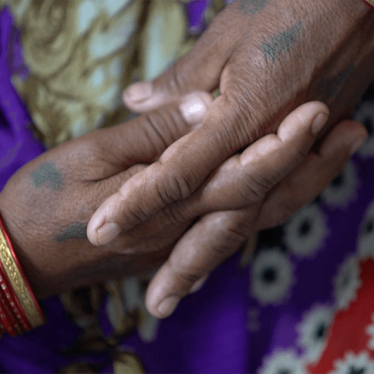“The police beat me up, detained my father, and threatened to lock him up under false charges if I didn’t tell the magistrate that I had filed a false complaint of rape, so I did as they said,” Kajal said of her ordeal after she reported being raped by three men in Neemuch district of Madhya Pradesh in September 2015.
Kajal (whose name has been changed to protect her identity), 23, had hitched a ride with a male acquaintance on September 14, 2015, to take food to her sick mother who was at a temple in a nearby village. Kajal says the man and two of his friends raped her and left her by the side of the road. Her screams drew passersby. One of them got in touch with her father, who took her to the police to report the crime. The police filed a complaint of gang rape and took her for a medical test.
A day after she filed the rape complaint, the police asked her father to bring Kajal to the police station to be escorted to depose before a magistrate. But at the police station, Kajal said, the police detained her father. After slapping her and beating her with a stick, they demanded that she deny her allegations and made her sign several blank pages. She said she was terrified into lying to the magistrate that she had made the complaint at her father’s behest.
Kajal said the police also threatened her father with arrest under false charges if he did not sign a statement that she had filed a false complaint. They beat her father and detained him for two more days.
The case of Kajal demonstrates how even five years after the legal and other changes spurred by protests over the gang rape and murder of a young student, Jyoti Singh, in Delhi, these reforms are yet to be fully realised.
Since the reforms were initiated, more women have been reporting sexual assault and rape. According to the latest available data, there has been a 39% increase in the number of rape complaints.
However, as part of an investigation into 21 cases of rape, sexual assault, or sexual harassment after the legal changes took effect, Human Rights Watch found that survivors of rape continue to encounter humiliation, victim-blaming and distrust at police stations. Police still resist filing the First Information Reports, especially if the victim, like Kajal, is from an economically or socially marginalised community. The Criminal Law (Amendment) Act, 2013 made police failure to register a complaint of rape a crime, punishable with up to two years in prison. But there is no record of a police official being charged under the provision.
Need for change
In some cases, like in Kajal’s, the police blatantly misuse their powers to threaten women and their families to drop or settle rape complaints.
Kajal, with the help of a local civil society organisation, which offered her legal help and psychosocial counseling, wrote to several senior police officials and the State Human Rights Commission, detailing police intimidation, but did not receive any reply.
In December 2015, the police filed a closure report, saying their investigation found that Kajal and her father had filed a false complaint because of a land dispute with the main accused. However, the chief judicial magistrate disagreed with the closure report and asked the investigating officer to depose before the court. Kajal also testified in the court in November 2016, saying she had been forced by the police to lie in her earlier statement. The case is pending resolution.
After she was raped, Kajal was abandoned by her husband and his family. She now lives with her parents, who were forced to move following threats from the accused, villagers’ taunts, and, finally, eviction by the landlord.
“I did the right thing by reporting but the police officers did not help me get justice,” Kajal said. “Everyone blames me. They say, ‘Her character is bad, that is why this happened to her.’”
In light of such damning evidence of police failings, the Union home ministry needs to ensure that police response to complaints of violence against women, including resistance to registering rape complaints, is at the top of the agenda for the annual conference of directors general of police in December. The conference is an important avenue for establishing greater Center-state coordination on law and order, and to review issues of police accountability.
Today, India needs leadership and action to review progress in implementing the laws dealing with violence against women, and to ensure survivors get the justice and dignity they deserve.









